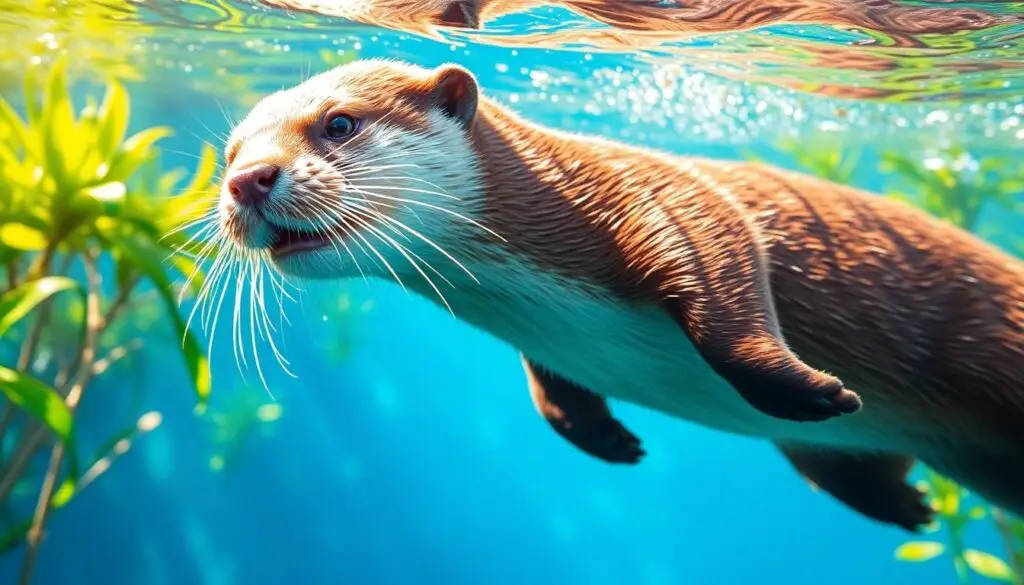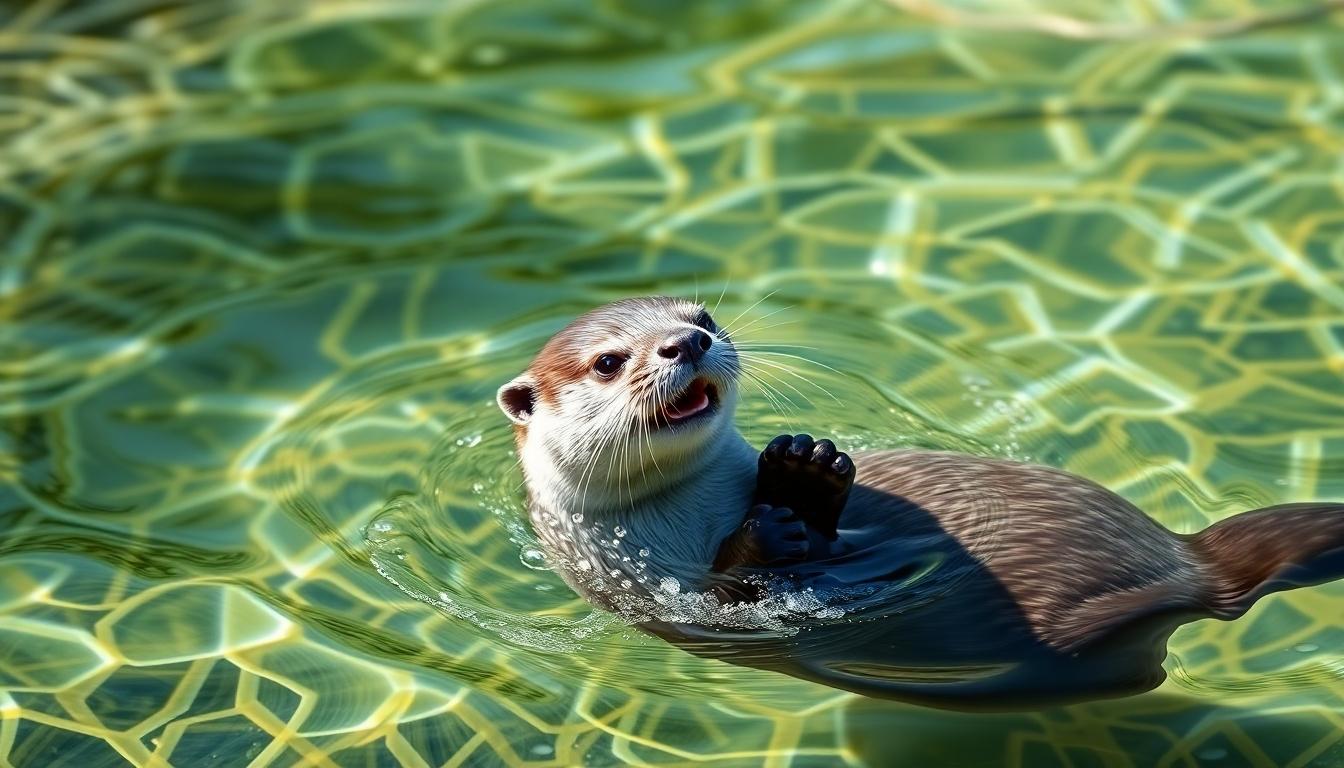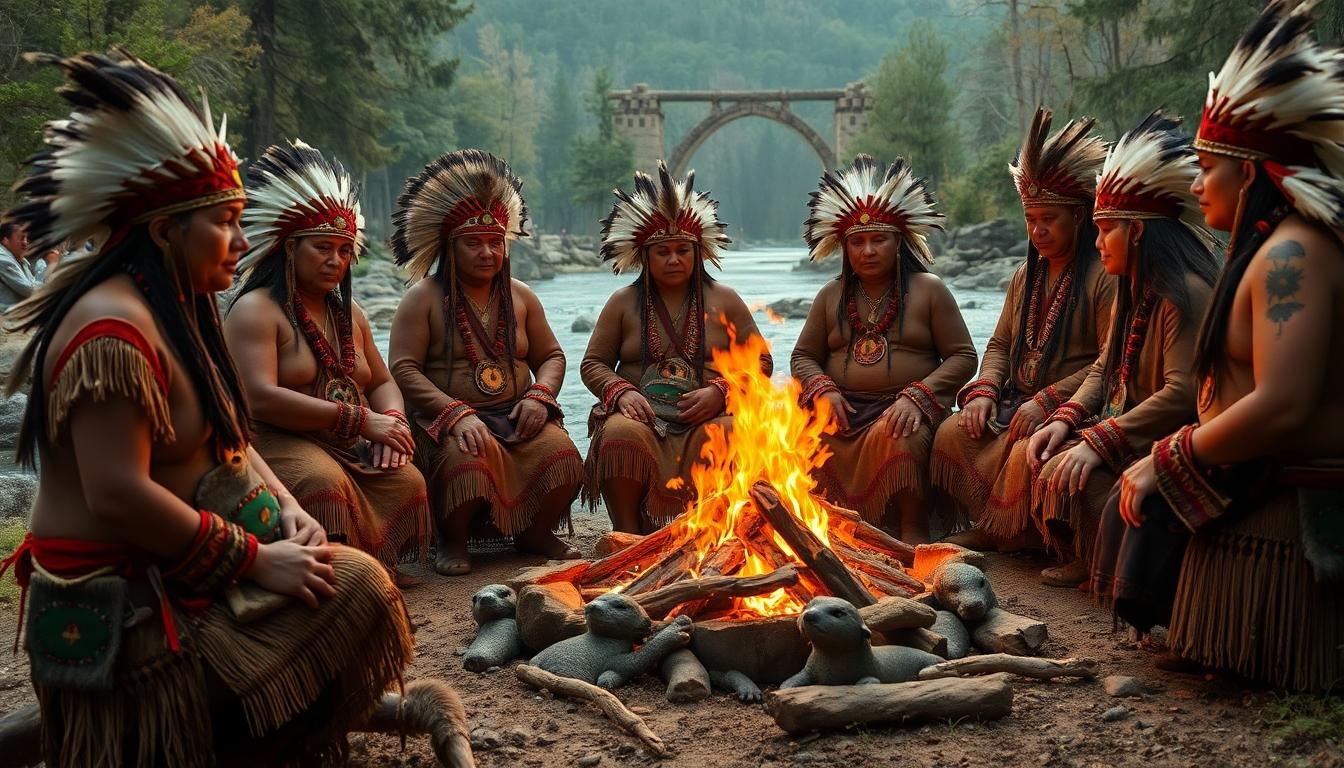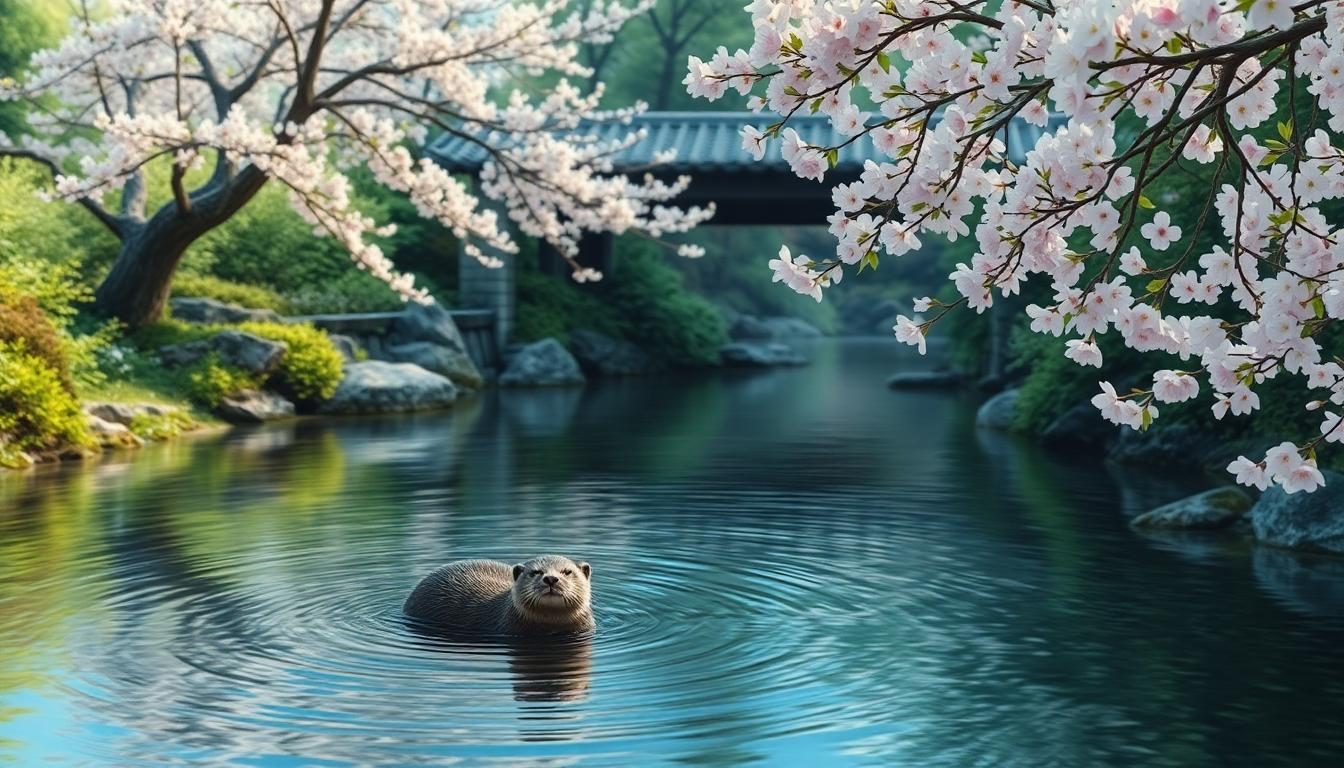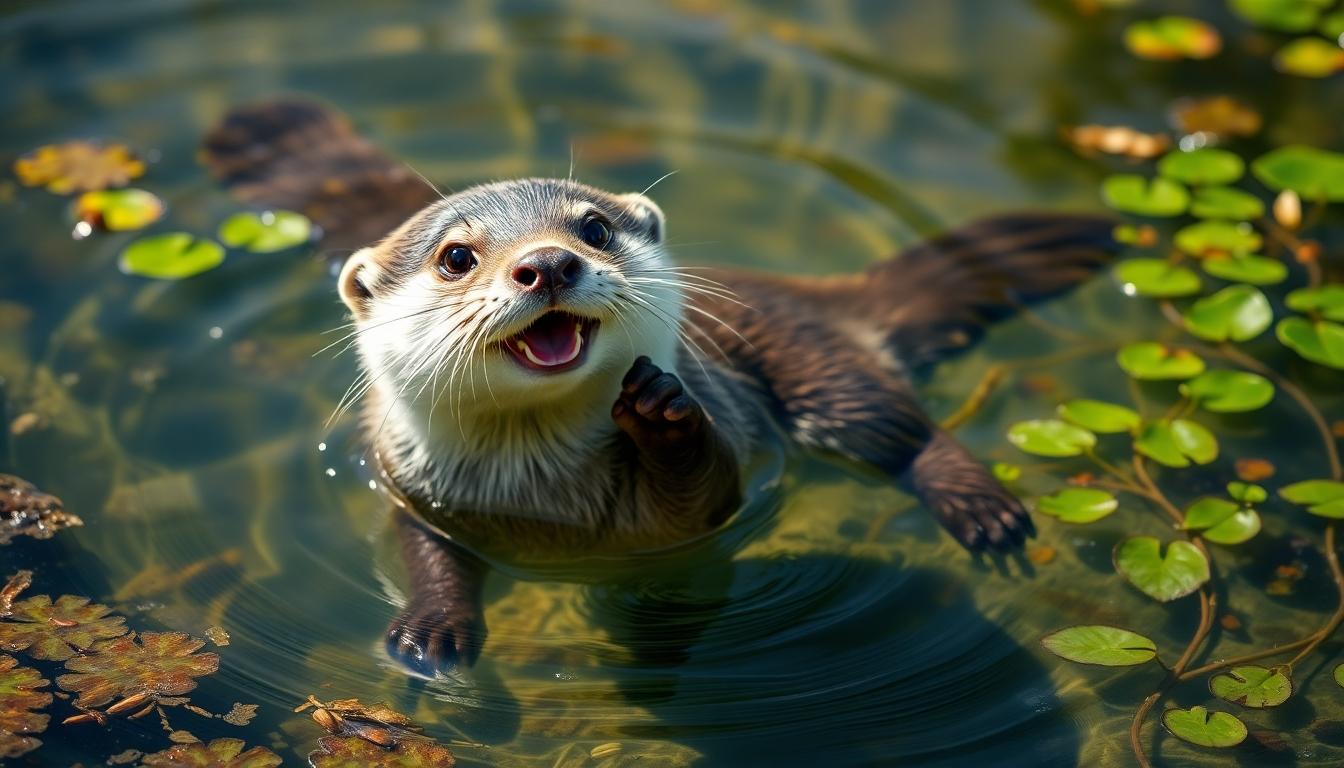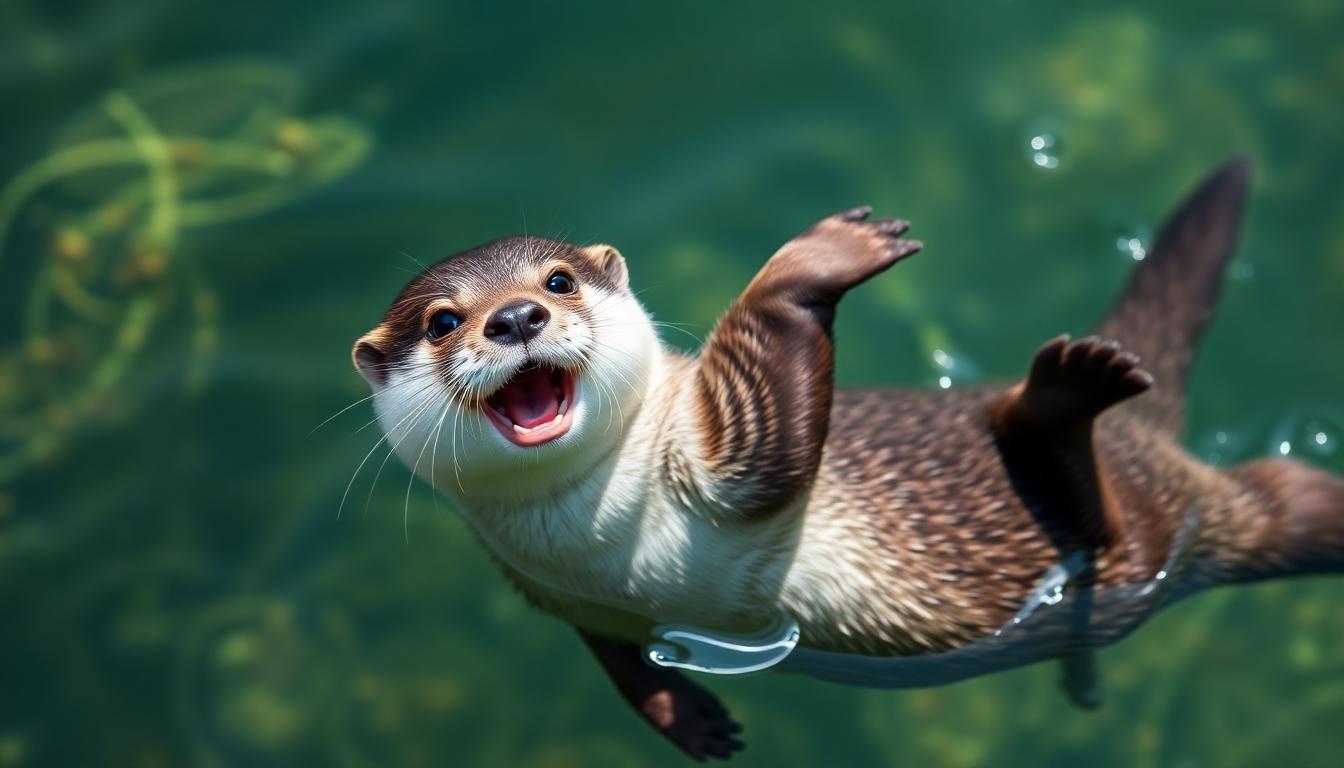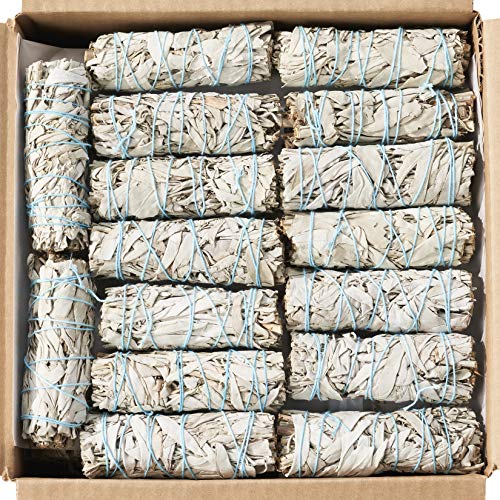Otters captivate us with their playful antics, but did you know these charming creatures also carry profound symbolic meaning across cultures? From Native American traditions to Japanese folklore, these water-loving mammals have represented everything from curiosity and joy to feminine energy and family bonds.
We’ll jump into the intriguing area of otter symbolism and explore how these intelligent creatures serve as powerful spirit animals for many seeking balance between work and play. Whether you’re drawn to otters for their resourcefulness or their ability to navigate between water and land with ease, understanding their symbolic significance can provide valuable insights into your own life journey.
Understanding Otter Symbolism Across Cultures
Otter symbolism varies significantly across different global cultures, with each interpretation reflecting unique societal values and environmental relationships. Native American tribes view otters as symbols of feminine energy, curiosity, and joy—qualities that manifest in their playful hunting techniques and social behaviors. Many tribes consider the otter a powerful medicine animal representing loyalty, community, and resourcefulness in challenging situations.
In Celtic traditions, otters embody transformation and adaptability due to their ability to navigate both water and land effortlessly. Ancient Celtic stories depict otters as shapeshifters and messengers between the earthly area and the otherworld, often appearing in folklore as guides for spiritual journeys or as protectors of sacred wells and waterways.
Japanese culture reveres otters (kawauso) as symbols of good fortune and prosperity. Traditional Japanese folklore portrays these creatures as mischievous yet benevolent beings with magical abilities to transform into humans or bring wealth to fishermen. Some regions historically believed otters could predict weather patterns and successful fishing opportunities, making them vital figures in coastal communities.
Eastern philosophies connect otters to emotional balance and intuitive wisdom. Their playful nature combined with skilled survival tactics represents harmony between joy and practical necessity—an essential teaching in many Eastern spiritual practices. Buddhist traditions specifically recognize the otter’s mastery of water navigation as symbolic of flowing through emotional challenges with grace.
Nordic and Scandinavian mythology presents otters in more complex contexts, often as characters in tales of transformation and consequence. The famous Otter’s Ransom story in Norse mythology involves an otter’s death leading to important events affecting gods and mortals alike, demonstrating how these creatures served as pivotal elements in cosmological narratives.
African folklore attributes wisdom and community protection to otters, particularly in regions where river otters thrive. Their strong family bonds mirror tribal values of kinship and collective responsibility. Some communities observe otter behavior to predict seasonal changes and environmental shifts, treating these animals as natural indicators of ecological health.
Modern interpretations of otter symbolism focus on their environmental significance as indicator species. Their presence signals healthy aquatic ecosystems, connecting ancient symbolic understandings with contemporary conservation values. Environmental organizations worldwide use otters as mascots to represent clean water initiatives and habitat protection efforts.
The Spiritual Significance of Otters
Otters embody powerful spiritual energy that connects us to both playfulness and emotional wisdom. Their association with water elements makes them natural symbols of emotional fluidity, intuition, and subconscious awareness in spiritual contexts.
Otters as Spirit Animals
As spirit guides, otters encourage us to embrace curiosity and adaptability in our daily lives. They teach us to trust our intuition when facing challenges, offering creative answers through unconventional perspectives rather than standard approaches. Otter energy reminds us of the importance of community bonds, reflecting their natural “raft” behavior where groups support one another through life’s currents. Their playful nature serves as a gentle reminder to maintain childlike wonder even during difficult times, helping us navigate emotional waters with grace and joy.
Otter Totems and Their Meaning
Otter totems symbolize exceptional resilience, nurturing energy, and visionary thinking for those who connect with their energy. Indigenous cultures particularly value otters as representations of harmonious coexistence with nature, emphasizing the importance of community interdependence rather than isolation. These totems teach us to balance our responsibilities with necessary lightheartedness, preventing burnout through strategic play and rest. Otter mother energy shows us how to protect our personal dreams with diligence and care, just as they vigilantly watch over their pups in the wild. Their connection to both land and water represents the ability to navigate different emotional and spiritual realms with confidence and adaptability.
Otter Symbolism in Native American Traditions
Otters hold profound symbolic significance across many Native American cultures, representing intelligence, cleverness, adaptability, and playfulness. Their unique characteristics have earned them special status in tribal folklore and ceremonial practices throughout indigenous North American communities.
Tribal Stories and Legends
Native American folklore frequently portrays otters as clever trickster characters known for their mischievous yet non-malicious exploits. These intelligent creatures outsmart formidable opponents through cunning and resourcefulness rather than physical strength. Among West Coast tribes, otters symbolize loyalty and honesty, embodying trustworthiness and reliability within the community. Northern British Columbia and Alaskan coastal tribes associated river otters with ghostly elements and drowning, establishing cultural taboos against consuming them. Cree legends attribute transformation powers to otters, reflecting their natural adaptability between land and water environments—a quality deeply respected in many indigenous belief systems.
Ceremonial Significance
Otters feature prominently in Native American ceremonial art and regalia, particularly in the Sun Dance ceremony where they represent forces of change and transformation. Their images adorn sacred objects, emphasizing their spiritual importance in ritual contexts. Several tribes, including the Muskogee and Chippewa, designate otters as totem animals for exact clans, highlighting their cultural significance within tribal identity structures. Northern tribes consider otters as harbingers of good fortune and emblems of family devotion, qualities celebrated through various ceremonial practices. The integration of otter symbolism into ceremonial life demonstrates the deep connection between wildlife observation and spiritual practice in Native American traditions.
Otters in Eastern Mythology and Folklore
Eastern cultures have developed fascinating mythological narratives around otters, attributing both supernatural qualities and practical significance to these aquatic mammals. Their representation varies significantly between Japanese and Chinese traditions, reflecting different cultural values and relationships with nature.
Japanese Otter Symbolism
Japanese folklore portrays otters as mystical shape-shifters with supernatural abilities. These creatures were believed to transform into beautiful women to trick humans, particularly to acquire alcohol they couldn’t otherwise obtain. Elderly otters reportedly developed enhanced powers including mimicry, often disguising themselves as beggars to lure unsuspecting individuals. The cultural importance of otters in Japan is further evidenced by the Japanese river otter’s designation as the official animal symbol of Ehime Prefecture, even though its tragic extinction in recent times. Their transformation abilities and cunning nature made otters prominent figures in Japanese supernatural stories, creating a complex mythological legacy.
Chinese Cultural Representations
Chinese historical records highlight otters primarily for their practical intelligence rather than mystical qualities. These clever mammals were occasionally trained to assist humans with fishing activities, symbolizing resourcefulness and community sustenance. Unlike Japan’s focus on otters’ supernatural aspects, Chinese cultural representations emphasized their functional role in food procurement and survival. This practical symbolism reflects China’s traditional approach to wildlife, where animals were often valued for their contributions to human livelihood and community support. Though exact mythological narratives about otters aren’t as extensively documented in Chinese tradition as in Japanese folklore, their representation as helpful companions underscores their cultural significance.
Modern Interpretations of Otter Symbolism
Modern perspectives on otter symbolism embrace these delightful creatures as representations of joy, curiosity, and community bonds. Their presence in contemporary spiritual and cultural contexts emphasizes the importance of playful approaches to life while highlighting their significance in environmental awareness.
Otters as Symbols of Playfulness and Joy
Otters embody the essence of playfulness and joy in modern symbolic interpretations, serving as powerful reminders to approach life with wonder and enthusiasm. Their naturally curious behavior encourages us to explore our surroundings with an open mind and inquisitive spirit. Many people connect with otter energy when seeking to restore balance between serious responsibilities and lighthearted play in their daily lives. These charming animals are also associated with nostalgia and loving memories, particularly about family relationships and friendships. Their playful antics in the wild demonstrate how maintaining a joyful perspective can help navigate life’s challenges while strengthening meaningful connections with others.
Environmental Conservation Symbolism
Otters function as powerful indicators of network health, inhabiting the intersection between land and water environments that carry rich symbolic significance. Their close connection to aquatic habitats links them symbolically to the divine feminine, creativity, and emotional fluidity. Conservation efforts focused on otter populations highlight the vital importance of preserving clean waterways and healthy habitats that support not only these beloved mammals but entire ecological systems. In various cultural traditions, otters play important roles in initiation ceremonies and major life transitions, symbolizing healing and transformation. This traditional symbolism parallels modern conservation messaging about environmental regeneration and network recovery. By protecting otter habitats, we’re preserving both a charming species and the symbolic representation of joy and healing they bring to human cultural understanding.
Otter Dream Interpretation and Meaning
Dreams featuring otters carry profound symbolic messages that connect to our emotional wellbeing and personal growth. Encountering an otter in your dreamscape often signifies a need for emotional healing or protection. These aquatic creatures, with their natural connection to water—a universal symbol of emotions—invite us to explore our feelings on a deeper level and address emotional wounds that may need attention.
Otters in dreams encourage establishing a healthy balance between leisure activities and personal responsibilities. Their appearance suggests the importance of strengthening social connections as a pathway to personal development and fulfillment. Many dream interpreters note that otter dreams arrive during periods when we’re neglecting either our playful nature or our serious obligations.
The playful otter spirit in dreams beckons us to embrace our intuitive and sociable qualities. Their joyful presence reminds us to approach life’s challenges with a lighter perspective, incorporating more spontaneity and pleasure into our daily routines. Dreams featuring otters swimming or playing typically indicate it’s time to reconnect with our innate curiosity and rediscover the joy in handling life’s complexities.
How to Connect with Otter Energy in Daily Life
Connecting with otter energy transforms your daily experience by infusing playfulness, intuition, and adaptability into your routine. Otters teach us to balance responsibility with joy, encouraging us to navigate life’s challenges with a positive outlook. Their unique energy combines water and earth elements, linking emotional awareness with practical grounding.
Embrace Playful Activities
Playfulness sits at the core of otter energy, reminding us to reconnect with our inner child. Try incorporating activities that bring genuine joy into your schedule, such as outdoor games, creative hobbies, or spontaneous adventures. Swimming, when possible, creates a direct connection to the otter’s natural element and helps release tension while fostering joy.
Trust Your Intuitive Wisdom
Otters navigate both water and land with remarkable intuition, teaching us to honor our inner guidance system. Practice listening to your gut feelings during decision-making moments rather than overthinking. Meditation near water enhances this connection, allowing your intuitive abilities to strengthen through regular practice and quiet reflection.
Foster Community Connections
Social bonds represent a fundamental aspect of otter energy, seen in their family-oriented communities. Strengthen your relationships by organizing group activities, sharing meals, or creating traditions that bring loved ones together. Volunteer work extends this energy beyond your immediate circle, creating wider community connections that reflect the otter’s collaborative spirit.
Adapt to Life’s Changes
Otters demonstrate exceptional adaptability, shifting between environments with ease and grace. Incorporate this flexible mindset by viewing challenges as opportunities rather than obstacles. When facing unexpected situations, ask yourself “How would an otter approach this change?” to tap into creative problem-solving and positive adaptation.
Daily Rituals to Channel Otter Energy
Connect with otter symbolism through simple daily practices:
- Spend 15 minutes near water sources like rivers, lakes, or even a bathtub to absorb calming water energy
- Keep otter imagery or tokens in your workspace to remind yourself of joy during stressful moments
- Practice playful movement like dancing, stretching, or swimming to embody otter’s fluid motion
- Journal about intuitive insights that arise throughout your day, acknowledging this otter-like wisdom
- Balance productivity with play by scheduling both focused work periods and genuine fun activities
These practices help integrate otter’s teaching of balancing responsibility with joyful living, creating a more harmonious approach to daily challenges while honoring your emotional wellbeing.
Conclusion
Otter symbolism transcends time and culture offering us powerful lessons about balance joy and intuition. These remarkable creatures invite us to embrace playfulness while reminding us of our deep connection to emotional wisdom and community values.
Whether appearing as spirit guides dream messengers or cultural icons otters encourage us to navigate life’s waters with adaptability and grace. Their presence in conservation efforts further bridges ancient wisdom with modern environmental consciousness.
By incorporating otter energy into our daily lives we can rediscover the essential balance between work and play while honoring the feminine wisdom and family bonds these delightful creatures represent. The otter’s enduring symbolism reminds us that even in challenging times there’s always room for curiosity wonder and joy.
Frequently Asked Questions
What do otters symbolize across different cultures?
Otters symbolize various traits across cultures including curiosity, joy, playfulness, and family bonds. In Native American traditions, they represent feminine energy and community, while Celtic cultures associate them with transformation. Japanese folklore views them as symbols of good fortune, and Nordic mythology features otters in complex narratives. Eastern philosophies connect them to emotional balance, while African traditions associate them with wisdom.
How do otters function as spirit animals?
As spirit animals, otters encourage embracing curiosity, adaptability, and intuition. They teach us to balance work with play, navigate emotional waters with confidence, and maintain strong community bonds. Otter spirit guides remind us to approach challenges with playfulness while remaining resourceful and adaptable. They emphasize the importance of maintaining childlike wonder even during difficult times.
What is the significance of otters in Native American traditions?
In Native American traditions, otters symbolize intelligence, cleverness, adaptability, and playfulness. They often appear as trickster characters in tribal folklore while embodying loyalty and honesty. Otters hold ceremonial significance in rituals like the Sun Dance, representing forces of change and transformation. They also serve as important totem animals for specific clans, highlighting the deep connection between wildlife and spiritual practice.
How are otters portrayed in Eastern mythology?
In Japanese folklore, otters are mystical shape-shifters with supernatural abilities, often transforming into beautiful women to trick humans. The Japanese river otter is the official animal symbol of Ehime Prefecture. Conversely, Chinese culture emphasizes otters’ practical intelligence and their role in fishing and community sustenance rather than supernatural qualities, reflecting China’s traditional approach to valuing wildlife for their contributions to human livelihood.
What do otters symbolize in modern interpretations?
In modern contexts, otters represent joy, curiosity, and community bonds. They remind us to approach life with wonder and enthusiasm while balancing responsibilities with play. Environmentally, otters function as indicator species for ecosystem health. They symbolize the divine feminine and emotional fluidity, with conservation efforts highlighting the connection between traditional otter symbolism and contemporary environmental protection.
What does dreaming about otters mean?
Dreams featuring otters typically signify a need for emotional healing or protection. They invite you to explore your feelings and address emotional wounds. Otter dreams encourage finding balance between work and play while embracing your intuitive and sociable qualities. These dreams often appear during times when you need to reconnect with joy or when emotional matters require attention.
How can I connect with otter energy in daily life?
Connect with otter energy by infusing playfulness into your routine—try new hobbies or engage in spontaneous activities. Trust your intuition more often and adapt flexibly to changes. Strengthen community bonds through meaningful connections. Incorporate daily rituals like spending time near water, keeping otter imagery nearby, or practicing “play breaks” during work. Balance productivity with leisure to embody the otter’s teaching of joyful resourcefulness.
What makes otters important in environmental symbolism?
Otters serve as indicator species whose health reflects ecosystem wellbeing. Their presence in waterways signals environmental quality, connecting ancient symbolism to modern conservation efforts. As semi-aquatic mammals navigating both water and land, they represent adaptability and balance between different elements. Their vulnerable conservation status in many regions has transformed them into powerful symbols for environmental protection and the importance of preserving natural habitats.

